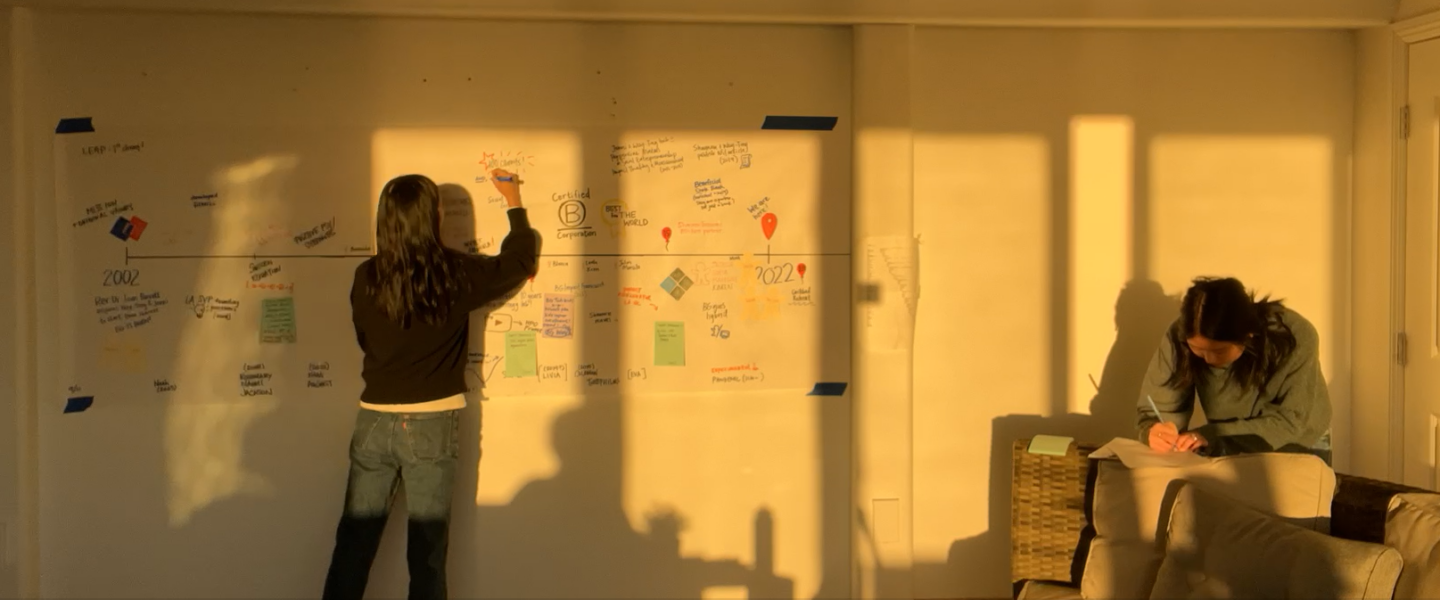
Only three weeks ago, we were holding in-person design sessions, meeting for coffee, and chillin’ out after work together. How quickly things have changed. Now, we live in a heightened state of physical isolation and general uncertainty.
When our “todays” are evolving so rapidly, it’s natural to ask questions about our “tomorrows.” What will happen to… our organization and its work? …the vulnerable we support and those in community with us? …the physical, mental, and financial health of our staff and volunteers? …this year’s grantmaking or programmatic budget and future sustainability? Even… what will happen to me? How do I manage work and high-energy kids at home, in the small space we share? And for all of us: How long will this last? When will we know that the crisis is over? When can we be in each other’s presence again?
Do you relate to (some of) these questions?? Though they can be anxiety-inducing, they are also real and valid. Our vulnerability in voicing them can be a powerful tool. In asking the question, we pinpoint issues of importance and highlight areas where we face the greatest ambiguity. Pandemic or not, we would never have the answers to all of these questions at once.
That said, one thing we CAN begin to address, is what MIGHT happen. And often, when we start thinking in terms of what MIGHT happen, we start to flesh out ways our tomorrows might transpire, organize them into related groupings, and spot areas where we have some degree of influence over the results. This is what we call “scenario planning.”
Scenario planning allows us to imagine and consider multiple possible futures, then make judgement and plans for each, where possible. This strategic thinking helps to bring structure and focus to uncertain times and draw insights into how we deal with the future. Ideally, we all have the discipline and time to do this scenario planning in advance of a crisis (you know us, we’re planners at core!). That said, tackling scenario planning during times of upheaval builds clarity for us today and confidence to respond quickly as situations evolve.
To give you a sense for what scenario planning entails, we’d like to offer some big-picture questions that can help focus your path forward:
- What are 3-5 ways this year could unfold? This is a generative question, so don’t be afraid to think broadly. It can help to think in terms of best- and worst-case scenarios. Or feel free to adapt to options, or scenarios, that make the most sense for you.
- What are key implications for each scenario? If you go down each path, what might this mean for people, budget, operations, etc? What actions would you need to take, by when?
- How will you know what scenario you are in? What are the markers that trigger change, or indicators that point toward needed adjustment? Is it a demand level? Available staffing? Financial milestone?
- What is the likelihood of each scenario happening, based on what you know now? Start working toward the most likely scenario and be on the lookout for changes in those markers.
If the situation changes (which it likely will), you’ve already thought through what you need to do, and can transition to the more pertinent scenario. A few years into the Great Recession, we had a former client tell us that they realized they were in “Scenario B,” and in short order, the Board and staff leadership adopted “Plan B.” Past planning using scenarios with us allowed them to recognize the signs and quickly pivot with less anxiety.
If you’d like a little more reading on the topic, here’s a McKinsey article about scenario planning. While focused on the corporate sector, this article gives further language to the level of uncertainty we encounter and how to plan accordingly.
Finally, please remember that you are not alone in facing the challenges of today. Thousands of organizations and millions of individuals across the country are grappling with these very same questions – as are we at Blue Garnet. While we may not have all the answers, we are doing our part to support our community through this time, in the best way we know how.
With this, we want to try something new and host a virtual Coffee & Conversation on the topic of scenario planning. We’re gauging interest now, so please email us hello@bluegarnet.net to let us know if you are interested, then we work to find a mutually convenient date!
If you have other ideas for how we can be of help, please comment below our shoot us an email.
Be safe and stay healthy, everyone.
Best,
Way-Ting
